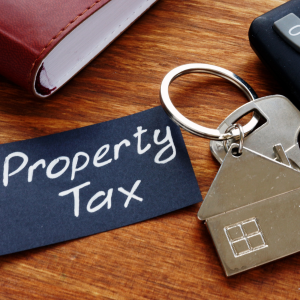
Understanding Real Estate Capital Gains Taxes in Connecticut
If you want to make the most money when you sell your home in Connecticut, you need to know about real estate capital gains taxes. Capital gains tax is a tax on the extra money you get when you sell your home. The amount you pay depends on how long you have owned the home.

Long-term gains, which happen when you hold on to a property for more than a year, usually get lower tax rates than short-term gains, which happen when you sell a property within a year of buying it. These taxes are affected by both federal and state rules in Connecticut.
The state follows the same rules as the federal government, but there are some differences, which can make figuring out the exact price hard. Property owners should also look into exemptions like the main residence exclusion, which lets single filers exclude up to $250,000 in profit and married couples filing jointly, up to $500,000. This is only possible if they meet certain criteria about where they live and how long they’ve owned the property.
If you’re considering selling your home in Connecticut, understanding these key facts can significantly impact your financial planning, and here’s how Valley Residential Group LLC can help you navigate the process more smoothly.
Navigating Federal and State Taxes on Property Sales
It is critical to understand the complexity of both federal and state taxes when selling a home in Connecticut. If the sale of your property results in a profit that exceeds certain criteria, capital gains tax can be an important consideration at the federal level.
The IRS allows an exclusion of up to $250,000 for single filers and $500,000 for married couples filing jointly on the gain from the sale of a principal house, subject to certain conditions being met. Connecticut charges additional state-specific taxes, such as the conveyance tax.
Your property’s sales price determines this tax and whether it is designated as residential or non-residential real estate. Understanding these intricacies makes it easier to accurately calculate future liabilities and make suitable strategies.
Furthermore, any outstanding municipal taxes or special claims must be resolved in order for the transaction to proceed smoothly. By efficiently managing these federal and state tax laws, Connecticut residents can have a more streamlined home-selling experience and avoid unforeseen financial liabilities.
How to Calculate Your Home Sale Tax Liability
To figure out how much Connecticut home sale tax you may have to pay, you need to know a few important things that could change the amount you have to pay. First, you need to check if the sale of your property qualifies for the capital gains tax exemption. If certain conditions are met, this exemption allows landlords who are single to retain up to $250,000 in profit and married couples to retain up to $500,000 in profit.
To find your possible taxable gain, take the selling price and subtract it from the property’s adjusted basis. The adjusted basis is the original purchase price plus any qualified improvements. Using a capital gains tax calculator can help you estimate how much tax you may owe on your Connecticut home sale and plan the most effective ways to sell your property. In addition, Connecticut has a conveyance tax that is different for each town and is charged on real estate transactions.
This state conveyance tax is typically included as a portion of the house sale price and must be added to your total tax bill. By understanding these parts, you’ll be able to properly determine how much of the money you receive from selling your home may be taxed by both the federal government and the state of Connecticut.
You can get more information about the deductions or exclusions that apply to your situation and be sure that you are following all the rules by talking to a tax professional.
Exemptions and Deductions for Home Sellers in Connecticut
Understanding the exemptions and deductions that are available can have a substantial impact on your tax liability when selling a home in Connecticut, especially if the transaction involves a seller’s stay in the House After Closing. The federal capital gains tax exclusion is a critical exemption that enables qualifying householders to exclude up to $250,000 of profit from their taxable income if they are single, or up to $500,000 if they are married and filing jointly.
The seller must have possessed and used the home as their primary residence for a minimum of two of the five years prior to the sale in order to qualify for this exclusion. Furthermore, your taxable gain may be reduced by specific closing costs that are associated with the sale of your property.
Real estate commissions, legal fees, title insurance premiums, and advertising expenses may comprise this category. The taxable gain when calculating capital gains taxes may be reduced by home improvements made during ownership that enhance the property’s basis.
Connecticut does not impose a distinct state capital gains tax; however, residents should be cognizant of the potential conveyance taxes that both state and local governments may impose on property sales. It is imperative to comprehend these exemptions and deductions in order to minimize the tax burden and optimize the profit from the sale of your Connecticut residence.
Strategies to Minimize Taxes When Selling a House
Homeowners in Connecticut have the option of implementing a variety of strategies to optimize their financial outcomes and reduce taxes when selling their property. One effective strategy is to capitalize on the capital gains tax exemption.
You may be eligible to exclude up to $250,000 of profit from your taxable income if the home has been your primary residence for at least two out of the last five years, or $500,000 if you are married and filing jointly. It is essential to maintain comprehensive records of home improvements and restorations, as these expenses can be included in the original purchase price of your property, thereby reducing your overall capital gain.
Furthermore, strategically timing the sale may result in tax advantages. For example, selling during a year in which your income is lower may result in a lower tax bracket. Potential deductions and credits that are specific to property transactions within the state can also be discovered by consulting with a knowledgeable real estate attorney or tax advisor who is familiar with Connecticut’s specific regulations.
By being proactive in the planning of your sale and remaining informed about local real estate market trends, you can effectively mitigate the tax burden associated with selling your home in Connecticut.
Looking to sell your Connecticut home fast? By selling for cash and using smart tax strategies, you can simplify the process and keep more of your profit. Contact Valley Residential Group LLC to learn how you can reduce taxes and close quickly without the hassle.
The Role of Primary Residence Exclusion in Reducing Tax Burden
Understand the primary residence exclusion when selling a property in Connecticut to significantly reduce your tax burden. The IRS provides a capital gains tax exclusion for householders who sell their primary residence. This exclusion can be particularly advantageous in reducing the taxable income resulting from the sale.

You may be eligible for this exclusion if you have owned and occupied your Connecticut home as your principal residence for a minimum of two of the five years prior to the sale. Married couples filing jointly may exclude up to $500,000. Similarly, single filers may exclude up to $250,000 of the capital gain from federal taxes.
This exclusion is essential in mitigating the overall tax burden associated with the sale of a residence, particularly in Connecticut, where property values are exceptionally high. In order to guarantee eligibility, homeowners must preserve precise records of occupancy and proprietorship.
Comprehending these provisions is not only beneficial for financial planning, but it also guarantees adherence to both federal and state tax regulations as one navigates the intricacies of real estate transactions in Connecticut.
Closing Costs: What Fees Can Be Deducted From Taxes?
It is essential to comprehend which closing costs are eligible for tax deductions when selling a property in Connecticut in order to optimize your financial outcome. Real estate commissions, legal fees paid to an attorney for transaction management, and specific transfer taxes associated with the sale are key deductible fees.
Furthermore, expenses associated with home improvements that are implemented within 90 days of the sale and enhance the property’s value may also qualify as deductions. It is crucial to differentiate between expenditures that are directly deductible and those that are added to the property’s basis in order to provide an accurate report on your tax return.
The Internal Revenue Service (IRS) establishes regulations regarding which expenditures qualify as selling costs, which can mitigate capital gains tax obligations. Before finalizing their property transaction in Connecticut, homeowners should consult with a tax professional to guarantee that they are in compliance with all federal and state tax regulations and that they are able to make accurate deductions.
Selling your home in Connecticut? You may be able to deduct certain closing costs and maximize your profit. Work with us, your trusted cash home buyers in Connecticut and other cities, to simplify the sale and take advantage of valuable tax deductions.
Reporting the Sale of Your Home on Tax Returns
It is essential to comprehend the process of accurately reporting the sale on your tax returns when selling a property in Connecticut. Capital gains from the sale, which are the profits that exceed the original purchase price of your property, must be reported to the Internal Revenue Service (IRS).
Your home’s adjusted basis must be determined by taking into account certain expenses related to the sale and improvements in order to calculate this. Single filers may qualify for a capital gains exclusion of up to $250,000, while married couples filing jointly may qualify for up to $500,000. This is provided that they have resided in their home for at least two of the past five years as their principal residence.
When declaring the transaction on your federal tax return, it is imperative to complete IRS Form 8949 and Schedule D. Furthermore, Connecticut residents should be cognizant of state-specific taxes and ensure that they adhere to both federal and state regulations.
Consulting a tax professional can offer personalized advice and assist in the optimization of any potential exclusions or deductions that are available under current tax laws.
Impact of Property Improvements on Capital Gains Tax
It is essential to comprehend the potential impact of property improvements on capital gains tax when selling a residence in Connecticut. The profit generated from the sale of your home, which is the difference between the selling price and your adjusted basis, is the premise for calculating capital gains tax.
The cost of any substantial enhancements you have implemented over time is included in your adjusted basis, in addition to the original purchase price. The adjusted basis of your home is increased by property improvements such as kitchen remodels, bathroom renovations, or the addition of a deck, which can effectively reduce your overall capital gain and potentially reduce your tax liability.
It is crucial to distinguish between restorations and improvements; this calculation may only incorporate improvements that enhance the property’s value, extend its useful life, or accommodate new applications. It is imperative to maintain comprehensive records and receipts for all substantial home improvements in order to accurately determine your adjusted basis when calculating capital gains tax on your home sale in Connecticut.
Utilizing a 1031 Exchange to Defer Capital Gains Tax
Deferring capital gains tax when selling a property in Connecticut can be achieved through the use of a 1031 exchange. This IRS-approved approach enables householders to defer the payment of capital gains taxes by reinvesting the proceeds from the sale of a property in a like-kind property.
As long as the replacement property is of equal or greater value and satisfies specific criteria, you can defer taxes that would otherwise be due upon the sale under Section 1031 of the Internal Revenue Code. The new property must be identified within 45 days and acquired within 180 days of the original property’s transaction. It is imperative to adhere to these strict timelines.
Connecticut homeowners can ensure that capital appreciation continues to grow without imminent tax liabilities disrupting financial plans by strategically managing their real estate portfolio and optimizing tax efficiency through a 1031 exchange. Nevertheless, it is imperative to seek the guidance of a tax advisor or attorney who is well-versed in both Connecticut’s state-specific regulations and federal stipulations in order to effectively navigate this process.
Record-keeping Essentials for Documenting Home Sale Transactions
It is imperative to maintain meticulous record-keeping when selling a property in Connecticut to ensure that the transaction is accurately documented and that tax regulations are adhered to. Detailed records of the original purchase price, including any associated closing costs, should be maintained by homeowners, as these figures are essential for calculating capital gains.
It is crucial to retain receipts and documentation for any home improvements or renovations, as these can be incorporated into the property’s cost basis, potentially reducing taxable gains. Furthermore, sellers are required to retain copies of all legal documents associated with the transaction, including the deed transfer, settlement statement (HUD-1 or Closing Disclosure), and any agreements with respect to real estate agent commissions.
In addition to facilitating the preparation of precise tax returns, the proper organization and preservation of these records also serve as essential evidence in the event of a question from tax authorities. In Connecticut, householders can effectively manage their financial obligations and minimize potential tax liabilities by maintaining comprehensive documentation throughout the home-selling process.
Preparing Documentation Required for Taxes After Selling a House
When selling a house in Connecticut, it’s important to know what the tax consequences will be and make sure you have all the paperwork you need. Having correct paperwork will make sure that you report the transaction correctly on your taxes and avoid any problems that might arise with the IRS or state tax officials.
This is a very important document called the settlement statement, which is also called the close statement or the HUD-1 form. It lists all the financial details of the sale. Also, it’s a good idea to keep track of any major changes you’ve made to the property, since they may lower your taxable gains by raising your cost basis.
It is also important to keep track of legal fees and real estate agent commissions, as these costs can be subtracted from the sale price when figuring out capital gains. According to IRS rules, you may be able to get a capital gains deduction if you have lived in the home for at least two of the last five years. Because of this, proof of residency, like utility bills or voting registration, may be helpful.
It is also a good idea to keep copies of your property tax records and information about when your mortgage was paid off. This way, you can be sure that all the important details are included when you file your taxes. If you carefully organize these papers, you will be better able to handle your tax responsibilities after you sell your Connecticut home.
Legal Considerations: Ensuring Compliance with CT Home Sale Tax Laws
It is essential to comprehend the legal implications of tax implications when selling a house in Connecticut to ensure compliance with state laws. Home vendors in Connecticut must be cognizant of capital gains taxes, which may be applicable if the property has experienced substantial appreciation since its acquisition.
It is crucial to ascertain whether the sale is eligible for any exemptions or exclusions under federal and state tax laws, such as the primary residence exclusion specified in the IRS code. Furthermore, Connecticut imposes a conveyance tax on real estate transactions, necessitating that sellers pay a percentage of the sale price at closing.
Potential withholding requirements should also be taken into account by sellers who are non-residents of Connecticut at the time of the sale. To avoid penalties or legal issues, it is important to consult with a qualified real estate attorney or tax advisor to help navigate these complexities and ensure that all necessary documentation and filings are completed accurately.
It is imperative for homeowners in Connecticut who intend to transfer their property to remain informed about changes in tax legislation.
Common Mistakes to Avoid When Filing Taxes After a House Sale
Homeowners frequently commit common errors when selling their homes in Connecticut, which can result in complications when submitting taxes. Overlooking the capital gains tax implications is a common error.

It is imperative to comprehend the application of Connecticut’s tax laws and the IRS to your circumstances, particularly in relation to the primary residence exclusion, if your home sale generates a substantial profit. Another error is neglecting to maintain thorough records of home enhancements, as they have the potential to lower taxable gains and increase your cost basis.
In some cases, vendors fail to consider closing costs and real estate agent commissions when determining their net proceeds from the sale. Penalties or overlooked deductions may ensue if the transaction is inaccurately reported on your federal or state tax return.
It is also crucial to consider any outstanding property taxes that may impact your overall liability. To ensure that their filing is accurate and to prevent potential complications after selling their property, homeowners should consult with a tax professional who is well-versed in Connecticut’s specific regulations.
How Much Tax Do You Pay When You Sell Your House in CT?
It is essential to comprehend the taxes associated with the sale of a home in Connecticut in order to make informed financial decisions. Sellers in Connecticut are subject to a real estate conveyance tax, which is determined by the property’s selling price. The conveyance tax rate that is imposed by the state typically commences at
The percentage is 75%, but it may rise in accordance with the selling price and location of the property. Furthermore, numerous municipalities in Connecticut impose an additional local conveyance tax of up to 25%, which would result in a total prospective tax rate of approximately 1% or higher in specific regions. If the value of the home has increased significantly, sellers should also consider potential capital gains taxes in addition to these taxes. This federal tax is applicable to profits that exceed the primary residence exclusion limits, which are $250,000 for single filers and $500,000 for married couples filing jointly. By comprehending these critical elements, you can guarantee that you are adequately equipped to fulfill all tax obligations associated with the sale of your Connecticut property.
How to Avoid Connecticut Capital Gains Tax on Sale of Home?
Understanding how to potentially avoid capital gains tax can have a substantial impact on your financial outcome when selling your residence in Connecticut. One effective approach is to capitalize on the IRS Section 121 exclusion, which enables householders to exclude up to $250,000 of capital gains for single filers and up to $500,000 for married couples filing jointly on the sale of a primary residence.
In order to be eligible, the property must have been owned and occupied as your primary residence for a minimum of two of the five years prior to the sale. Additionally, it is advisable to strategically time your sale; if you have encountered a significant life event, such as a job relocation, health issues, or unforeseen circumstances, you may be eligible for a partial exclusion, even if you do not satisfy the full residency requirement..
Additionally, maintaining meticulous records of home improvements can elevate your adjusted cost basis and mitigate your taxable gain. Consulting with a tax advisor who is well-versed in Connecticut’s unique regulations can offer customized strategies and guarantee compliance, all while maximizing your tax savings potential.
How Much Is Capital Gains Tax in CT on Real Estate?
It is essential to comprehend the capital gains tax implications when selling a property in Connecticut. The capital gains tax on real estate in Connecticut is influenced by both federal and state tax regulations. According to one’s income classification, capital gains tax rates may be 0%, 15%, or 20% at the federal level. Connecticut considers capital gains to be regular income for the purpose of state taxes, and as such, they are subject to the state’s income tax rates. The tariffs in question vary from 3% to
The percentage is 99%, which is determined by your taxable income. It is crucial to recognize that a federal exclusion of up to $250,000 of gain may be available to individuals who have resided in their property for a minimum of two of the five years prior to selling, or $500,000 for married couples filing jointly. Nevertheless, Connecticut’s state taxes are not included in this exclusion. Potential capital gains are determined by subtracting the sale price of your property from its purchase price and any qualifying improvements. When selling real estate in Connecticut, it is advisable to consult with a tax professional who is knowledgeable about both federal and state laws in order to effectively navigate these complexities and reduce your tax liability.
Worried about capital gains taxes when selling your home in Connecticut? Work with us, your trusted Berlin cash buyers and nearby cities in Connecticut, to explore ways to reduce your tax burden and walk away with more money in your pocket.
Do You Have to Pay IRS Taxes When You Sell a House?
When selling a home in Connecticut, it is very important to know about the possible IRS taxes that may apply. In general, you may be able to get a capital gains tax break when you sell your main home.
The IRS lets homeowners who are single not include up to $250,000 in the profit from selling their home. Married couples filing jointly can include up to $500,000. To be qualified for this exclusion, you must meet certain requirements. For example, the home must have been your main residence for at least two of the five years before the sale.
If these conditions are met, you may be able to significantly lower or even get rid of your federal capital gains tax obligation. Still, if your profit is more than the exclusion amounts or if you don’t meet the residency standards, you will have to report the extra amount and may have to pay taxes on it.
It’s also important to know that different rules govern investment houses and second homes. It is important to understand these details if you want to handle your taxes correctly when you sell a house in Connecticut.
Tax professionals can help you make sure you are following IRS rules and taking advantage of all the exemptions and discounts that are available.
Ready to sell or have questions? Call us at (860) 589-4663 for a no-obligation offer. Get started today!
Helpful Connecticut Blog Articles
- Cost To Replumb Your Connecticut Home
- Sell Your Connecticut Home With A Reverse Mortgage
- Best Time to Sell a House in Connecticut
- Selling a Water-Damaged House in Connecticut
- Selling a House With a Tax Lien in Connecticut
- Attorney Fees for House Closings in Connecticut
- Selling A House With Foundation Issues In Connecticut
- Selling A Fire-Damaged House In Connecticut
- How To Successfully Sell A House With A Lien In Connecticut
- Understanding The Taxes On Selling Your Home In Connecticut
- Cost to List on MLS in Connecticut
- How to Claim Ownership of Abandoned Property in Connecticut
- How to Sell an Inherited House in Connecticut
- How Long Can Seller Stay in House After Closing in Connecticut
- Can the Seller Back Out of a Real Estate Contract in Connecticut?
- Does a Seller Pay Closing Costs in Connecticut?

| TAX SYSTEM | TAXPAYERS | INVESTING | BANKRATE.COM | BANKRATE | ASSET |
| EFFECTIVE TAX RATE | LUXURY PROPERTY | CHILDREN | CHILD | MONEY | REALTOR |
| INFORMATION | BUYER | EQUITY | LENDING | LOANS | PERSONAL TAX |
| INCOME TAXED | HOME EQUITY | TAX BRACKETS | ICON | LAWYER | INSURANCE AGENT |
| FILING STATUS | ADVERTISERS | STOCKS | POLICY | MORTGAGE | INSTALLMENT SALE |
| HOME EQUITY LOANS | EDITORIAL | RENTING | INVESTMENT PROPERTY | REAL ESTATE INVESTMENTS | REAL ESTATE INVESTORS |
| HOMEOWNERS ASSOCIATION | HOA | HOME RENOVATIONS | HELOC | GOAL | TAX YEARS |
| CONSUMERS | CASH | CARET | CAPITAL ASSET | TAX DEDUCTIONS | TAX ADVISORY |
| SUBJECT-MATTER EXPERTS | SUBJECT MATTER EXPERTS | RESEARCH | REDFIN | PERSONAL FINANCE | HOMEBUYERS |
| OPTIONS | MONEY MARKET ACCOUNTS | MONEY MARKET | MEDIAN | LINE OF CREDIT | HARTFORD |
| FSBO | FOR SALE BY OWNER | FEEDBACK | EXPERT | CREDIT SCORE | CREDIT CARD |
| CONTRACT | CONFIDENCE | CAPITAL LOSS | BANK | BANKING |
